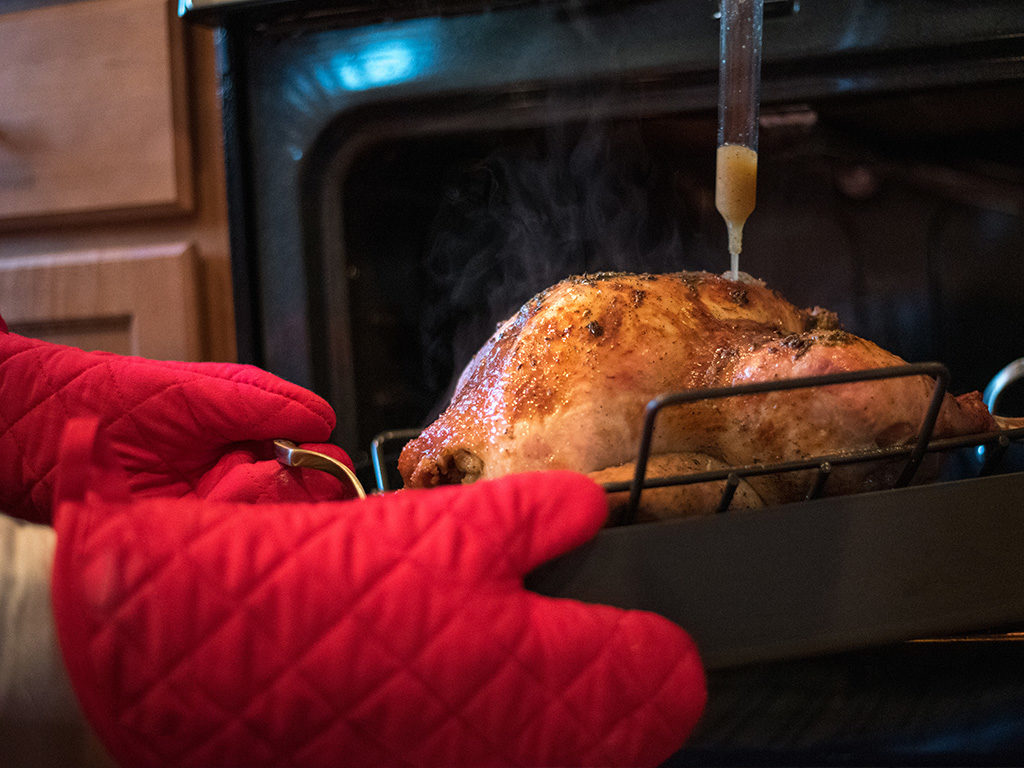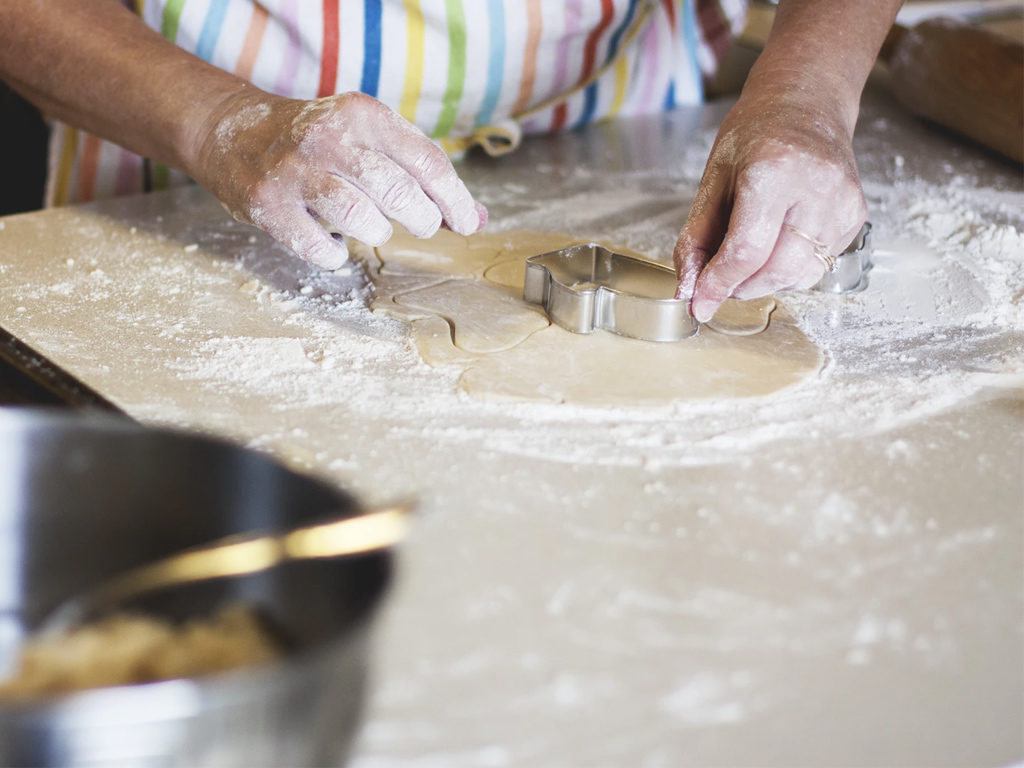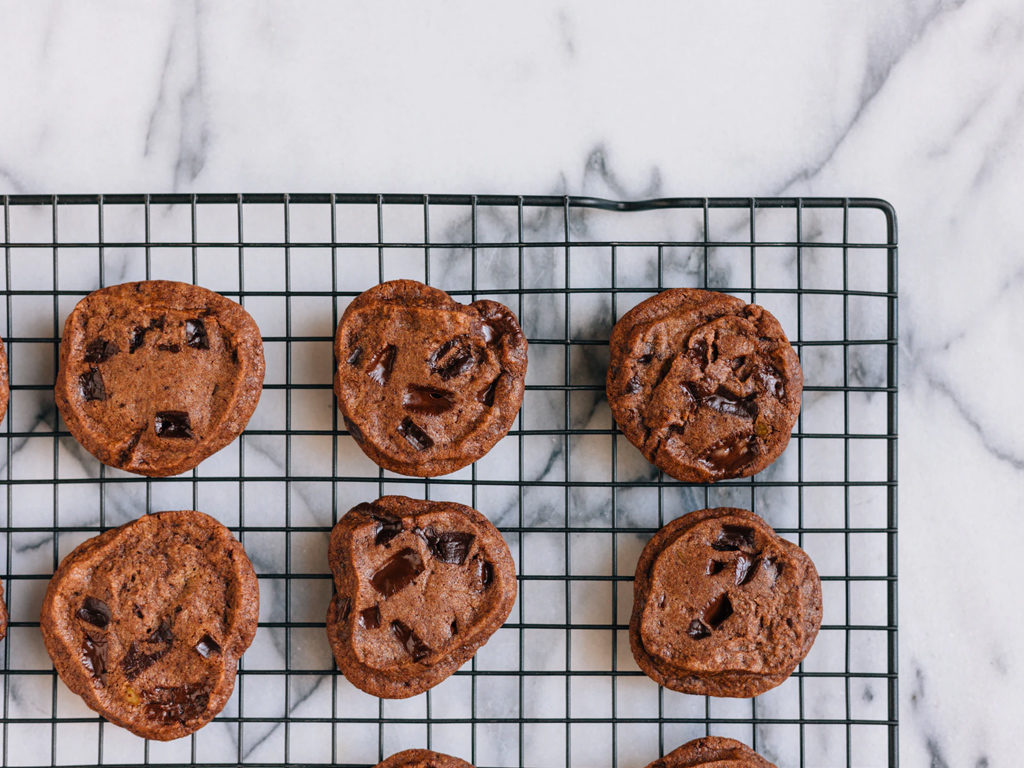Holiday Cooking and Granite Countertops
The holidays are here and the hustle and bustle is in full force. If you and your family will be carrying on time honored traditions such as baking and extravagant holiday meals, your kitchen is going to be like grand central for the next few weeks. Hot from the oven cookie trays, sizzling casserole dishes and wines as red as Santa’s suit may be whizzing around the kitchen. Find out what your granite countertops can take and when to take extra precautions.
Can Your Granite Take the Heat?
Granite countertops are known for their beauty and durability. Did you know that they can withstand heats as high as 1,200 degrees Fahrenheit? Under normal circumstances, one cannot damage granite from the heat of a pan. But don’t stop counting your trivets and pot holders just yet.

The melting point of Granite is 2210o to 2300o F. As a comparison, steel starts to melts at 2498o F. The heat resistance of this stone is one of nature’s miracles. Nonetheless, extended exposure to heat can soften this stone leading to discoloration and gouging. What’s more, if your hot pots and pans have food debris on the bottom, they could potentially stain the surface. Finally, extended heat can sometimes even discolor the sealer used on the granite.
To Stain or Not To Stain
Whether you’re a professional chef or a cooking goof, spills and splatters happen during holiday cooking. If you’re cooking in a kitchen with granite, most spills are harmless. This is especially true if your countertops have been properly sealed. But you’ll want to be swift in removing these types of spills especially if its time to reseal your granite:
- Red wine
- Tomato juice
- Blueberry
- Coffee
- Citrus
- Mustard
- Toothpaste
- Anything with chemicals
When water seeps into granite, it leaves a dark spot and then evaporates in a few minutes with the color returning to normal. Substances like cooking oils that wont evaporate can cause permanent stains when allowed to soak into the stone. Even a properly sealed granite countertop can stain if a spill is left sitting too long.
Cleaning Up Holiday Cooking Messes
Before your granite countertops, cleaning up after holiday cooking was easy. It may have been second nature to reach for the Clorox Wipes or any standard off-the-shelf kitchen cleaner. Now that a beautiful stone is installed in your kitchen, a bit more consideration is required before cleaning the holiday messes.

Sometimes, the best place to start is knowing what not to do. For granite, do not use vinegar, ammonia, or lemon cleaners. Even though granite is a very durable surface, it is susceptible to acidic formulas, which eat away at its surface. Lemon and vinegar contain more acid than is safe for granite.
Occasional use of glass cleaner like Windex or Clorox Wipes is certainly convenient. However, with repeated regular use they can permanently damage your granite tops. The damage is most commonly the dulling of the shine, but can also result in pitting of the stone. Keep in mind that improperly cleaning your stone may also negate its warranty.
The best way to clean and sanitize your countertops after holiday cooking (or whenever) is with warm water and mild dish detergent.

Now that you know, your holiday cooking will be even more festive and fabulous!
